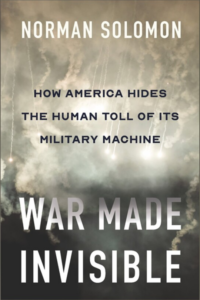 Norman Solomon begins his fine book, War Made Invisible, with a discussion of propaganda — which requires repetition, repetition, repetition. Think, for example, of the everywhere-present term “defense spending.” The United States maintains 750 military bases throughout the world — three times the number of bases of all other countries combined. The United States spends more on its military than the next 10 countries combined. And yet the very term “defense spending” emphasizes its necessity and discourages doubt. But propaganda is also silence, as Solomon writes, “What’s omitted pushes thoughts away, providing tacit cues as to what isn’t worth knowing or seriously considering.” The media numbs us to the on-the-ground meaning of invasion and war:
Norman Solomon begins his fine book, War Made Invisible, with a discussion of propaganda — which requires repetition, repetition, repetition. Think, for example, of the everywhere-present term “defense spending.” The United States maintains 750 military bases throughout the world — three times the number of bases of all other countries combined. The United States spends more on its military than the next 10 countries combined. And yet the very term “defense spending” emphasizes its necessity and discourages doubt. But propaganda is also silence, as Solomon writes, “What’s omitted pushes thoughts away, providing tacit cues as to what isn’t worth knowing or seriously considering.” The media numbs us to the on-the-ground meaning of invasion and war:
[T]he routine exclusion of people harmed by U.S. warfare conveys that they don’t really matter much. Because we rarely see images of their suffering or hear their voices or encounter empathetic words about them, the implicit messaging comes through loud and clear. The silence ends up speaking at high volume: Those people hardly exist. They are others. They are not our concern. They don’t particularly matter, while our country is causing their misery.
In his book, Solomon targets the media and the political establishment, but educators also should take his critique to heart. Too often, our curriculum “makes war invisible.” Too often, the ravages of U.S. militarism go unexamined in our classes. This excellent, fact-filled book insists: Teach about this; people’s lives depend on it. [Review by Rethinking Schools.]
A Rethinking Schools editorial notes,
War Made Invisible opens with an epigraph from Aldous Huxley, written in 1936: “The propagandist’s purpose is to make one set of people forget that certain other sets of people are human.” In contrast, our job as educators is to equip students with the skills to recognize, critique, and actively oppose the propaganda of militarism, colonialism, and white supremacy. This kind of education will look different in kindergarten from how it does in middle school humanities or high school chemistry, but this work belongs to all of us. Continue reading.
ISBN: 9781620977910 | New Press
Watch this interview below with author Norman Solomon and Amy Goodman from March 21, 2023, on Democracy Now!.


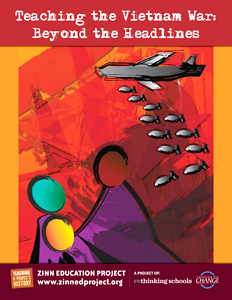
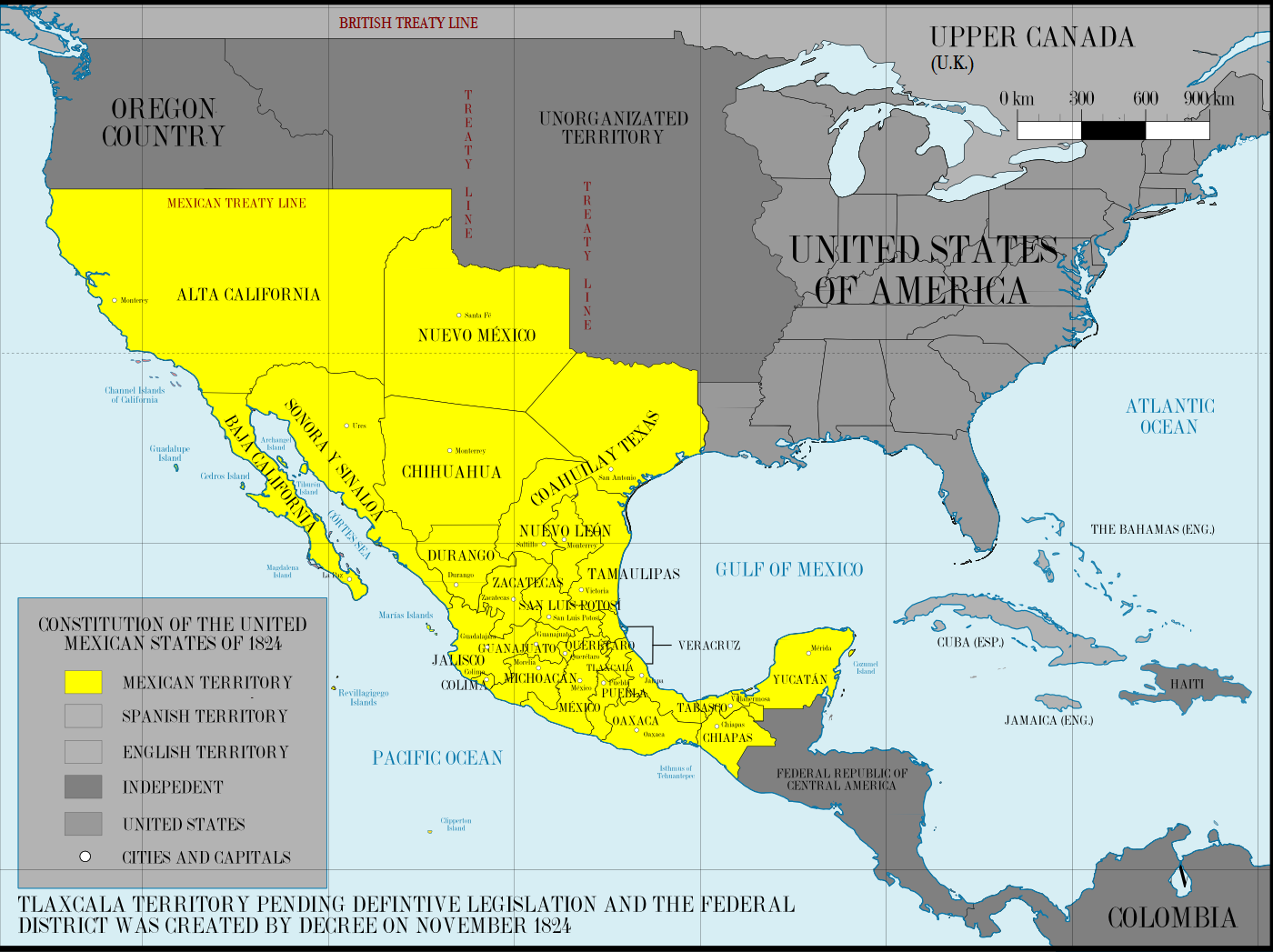

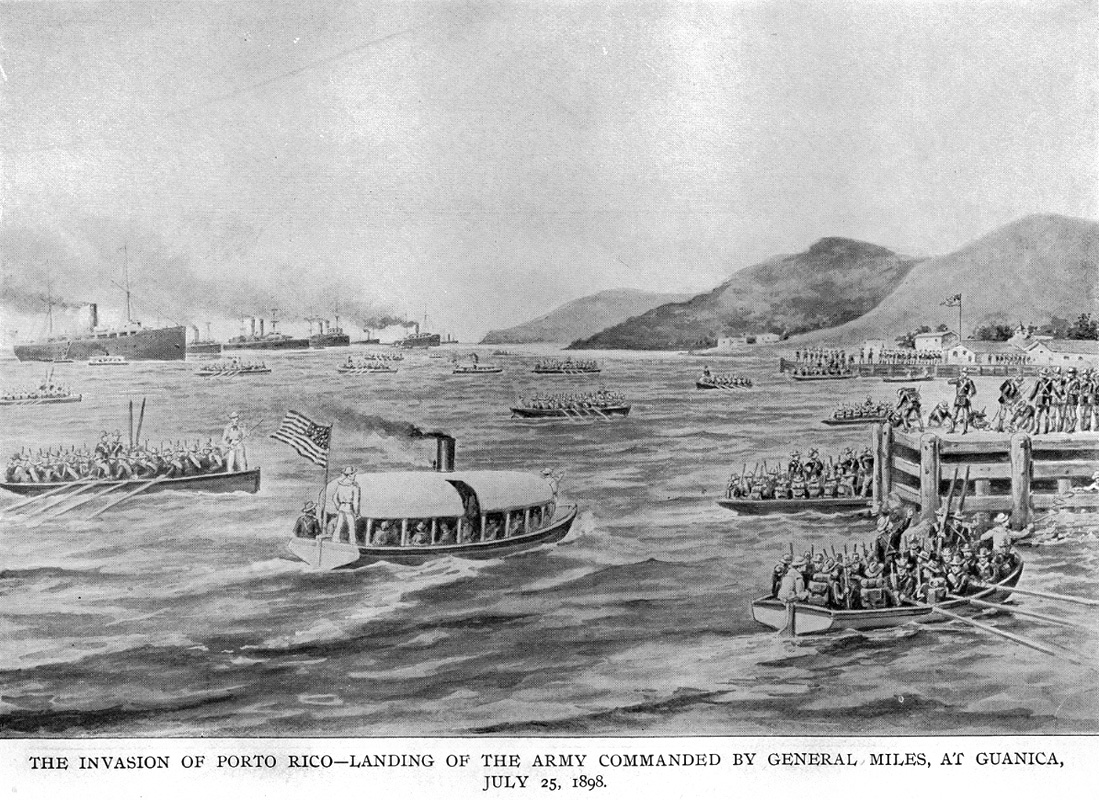
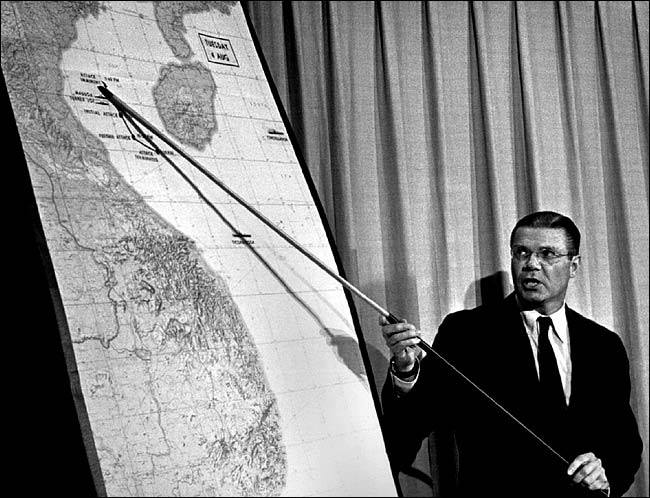







Twitter
Google plus
LinkedIn